Timeline
A Century of Impact
In 1913, Jesse S. Reeves, chair of the University of Michigan's political science department, responded to America's frustrations with government inefficiency and graft by calling on the University to offer the nation's first advanced degrees in public administration. The University responded to that call, and has never looked back, never stopped leading. In celebration of our centennial anniversary in 2014, we created this timeline to offer a walk through our history–from IPA to IPPS; from SPP to the Ford School; from our first female alum to our 100th anniversary class. Have a memory or photo you'd like to share? Let us know by sending an email to [email protected].
1913
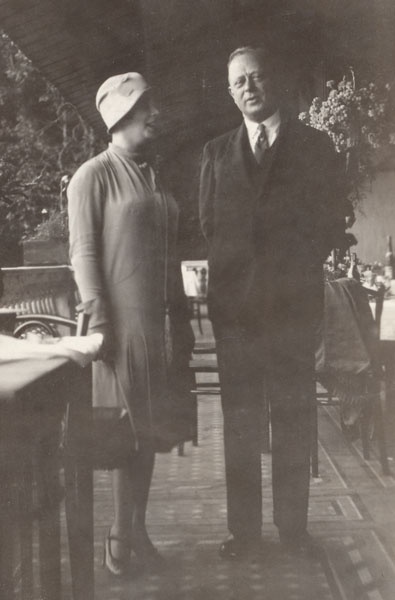
Reflecting Progressive Era frustrations with government inefficiency and corruption, Jesse S. Reeves, chair of the University of Michigan's political science department, proposes America's first master's in municipal administration. While Reeves is primarily focused on international law (and in 1930 will serve as a technical advisor at the League of Nations Hague Conference), he believes "that the University has a distinct opportunity, not only in offering a public service to the people of the state [of Michigan]…but in leading the way in the training of municipal experts."
16th Amendment permits a graduated income tax.
1914
University of Michigan announces the nation's first graduate degree in municipal administration; a three-month professional experience in municipal governance is required for graduation. Robert T. Crane, who served as consul in Argentina and Guadalupe, is appointed director.
A Bureau of Reference and Research in Government is established to ensure that courses are tied to the most pressing issues faced by municipal government leaders.
First joint master's degree, in public works administration, offered with the University's engineering department. Many more will follow.
President Woodrow Wilson signs the Federal Trade Commission Act on September 26, 1914. The Federal Reserve System, established at the end of 1913, begins operations.
1916
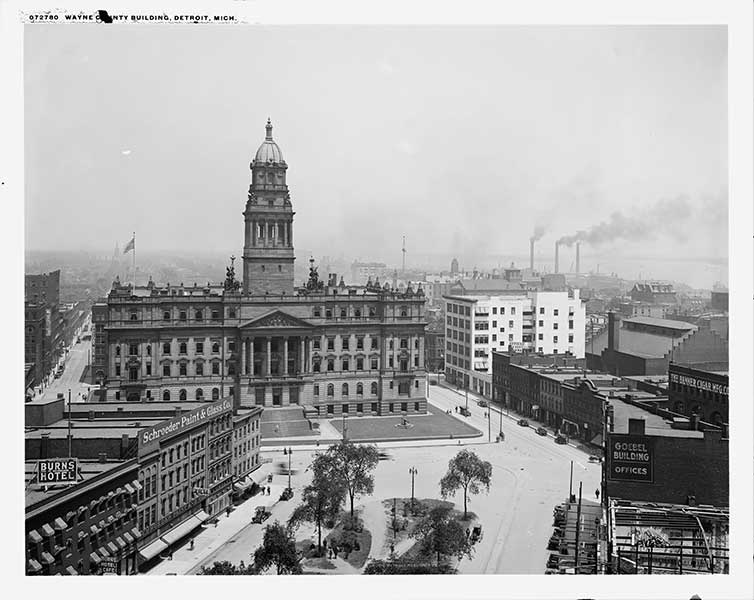
Lent D. Upson, first director of the Detroit Bureau of Government Research, is recruited to teach weekly seminars in municipal governance and to coordinate student internships in Detroit. His starting salary: $0. Later, the bureau will become the Citizen's Research Council of Michigan. "The right to criticize government," says Upson, "is also an obligation to know what you are talking about."
1917
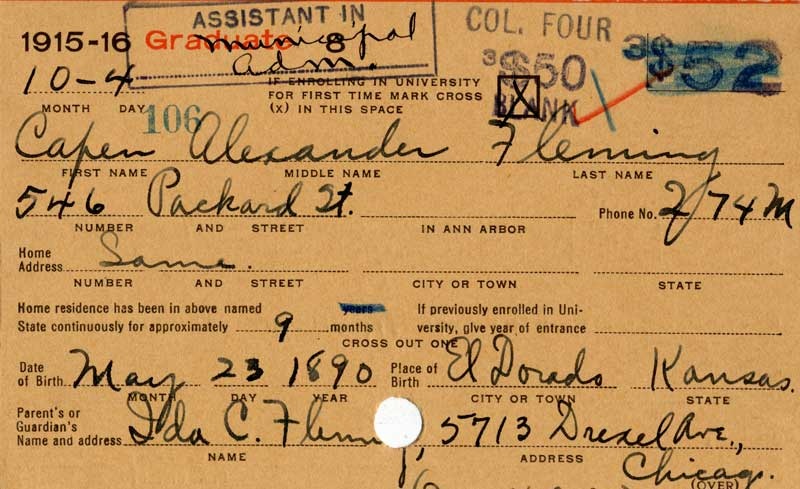
Capen A. Fleming becomes the first student to earn the Master of Municipal Administration degree. Following graduation, the Kansas native moves to San Francisco, where he will serve as manager of the Chamber of Commerce Department of Industry.
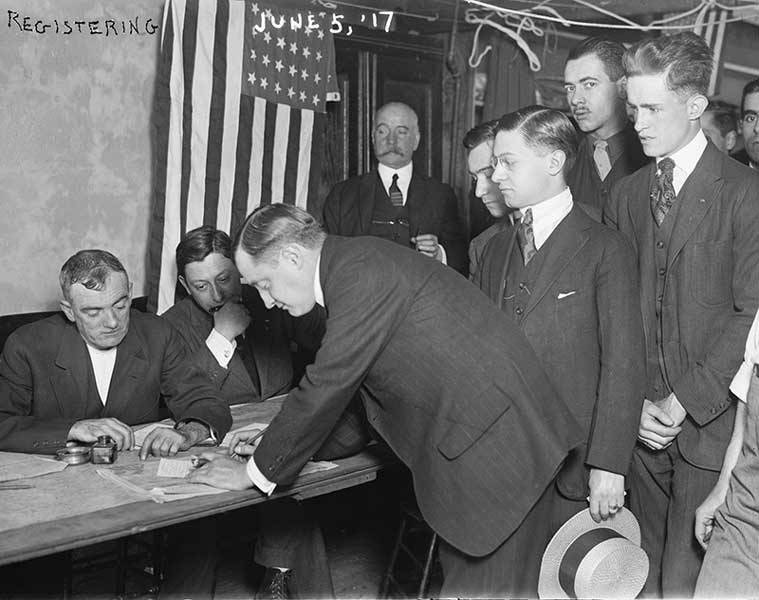
United States declares war against Germany on April 6; Selective Service Act signed into law on May 18.
1919
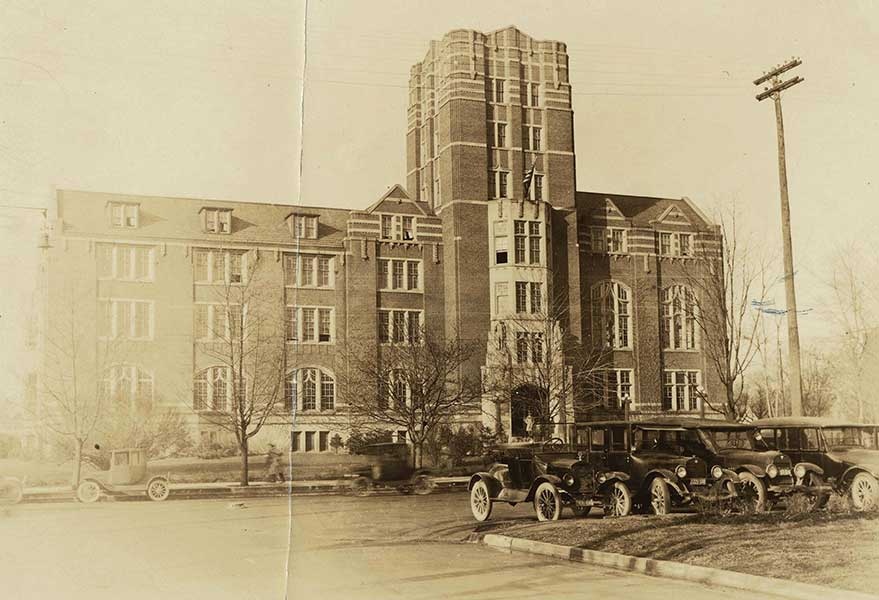
Over the last two years, World War I has prevented many students from continuing their studies; no municipal administration degrees are conferred this year.
The University of Michigan opens the Michigan Union building. It's a gathering space, but only for men.
Versailles Peace Treaty signed on June 28; League of Nations established to promote world peace.
The 18th Amendment to the U.S. Constitution is ratified, prohibiting the sale and manufacture of alcohol.
1920
19th Amendment is ratified on August 18, giving American women the right to vote.
1922
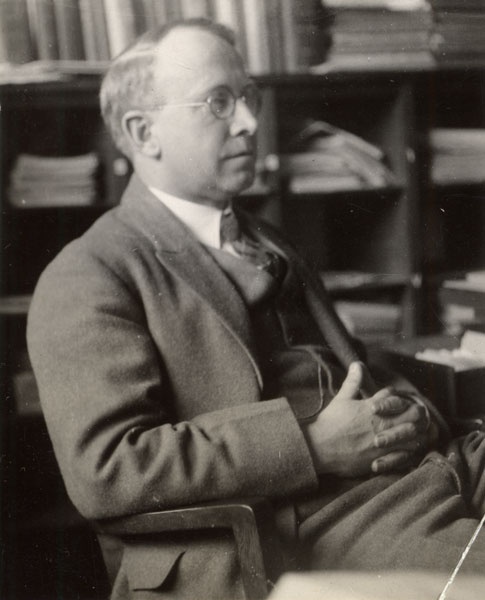
Thomas H. Reed takes over as director, serving for the next twelve years. Reed is an academic who taught at Berkeley, but also a municipal government leader who served as city manager of San Jose, California and executive secretary to California Governor Hiram Johnson. Reed places emphasis on practical municipal problems.
Reed continues the commitment to hands-on professional development opportunities for students, "You can't teach all there is to know about managing a city academically. You cannot put it in the form of lectures, or get it into a textbook, and give it to a young man, and let him read it, and send him out a full-fledged city manager. He has to cut his eye-teeth upon some kind of a city manager problem."
1927
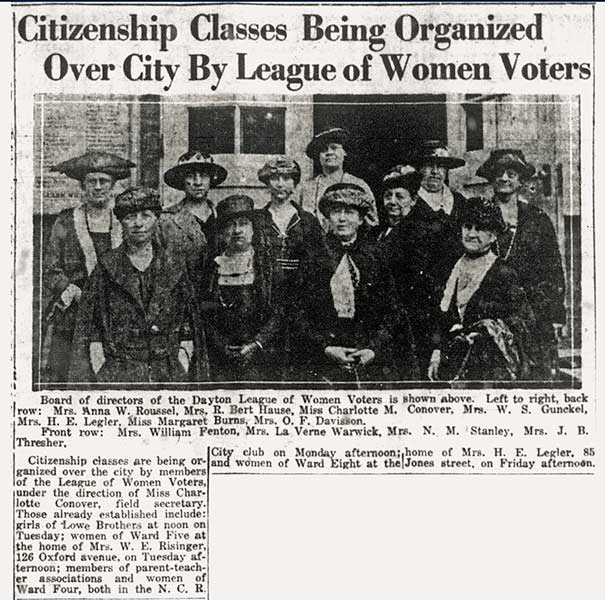
Charlotte Mary Conover Jones becomes first alumna. As field secretary for the Dayton Ohio League of Women Voters, Conover Jones helps coordinate citizenship schools for women, an active lecture series, and municipal research projects for local leaders.
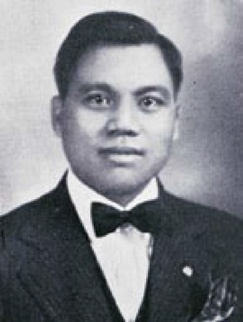
A number of international students graduate this year, including Rudolfo Kawi Hidalgo, from the Besao Mountain Province of the Philippines. Hidalgo, the son of a rice farmer, will go on to represent his district in the Philippine Legislature.
1928
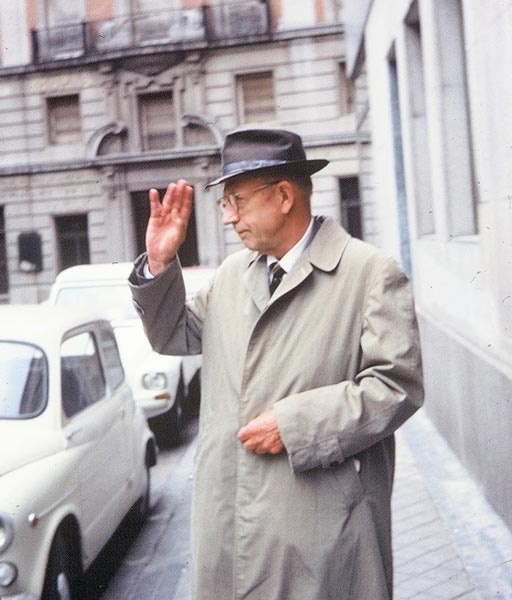
Arthur W. Bromage joins the faculty as a specialist in municipal affairs.
1929
In response to pressure from alumnae, the University of Michigan opens the Michigan League–it's open to students, faculty, and staff, but only women.
Stock market crashes on October 29; Great Depression will soon follow.
1931
Ione Dority (AB '23, ABLS '27) is hired to build the research collection in public administration. By 1940, she's gathered 25,000 books and documents and nearly 50,000 pamphlets. The material is broad in scope, but Dority places special emphasis on materials of relevance to the State of Michigan.
1933
Franklin Delano Roosevelt inaugurated on March 4: "... A host of unemployed citizens face the grim problem of existence, and an equally great number toil with little return," he says. "This nation asks for action, and action now."
1934
A grant from the Horace H. Rackham estate allows the Bureau of Government to expand research programs; bureau begins work on an analysis of fiscal policy during the Great Depression.
1935
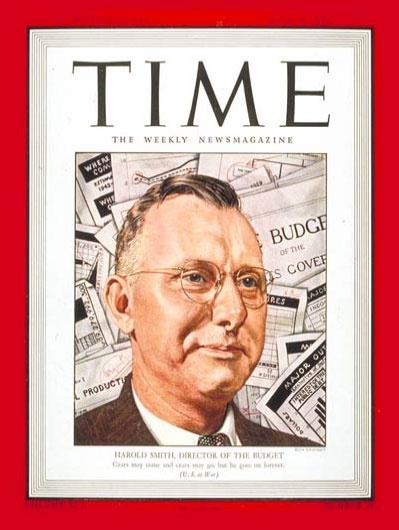
The degree program is discontinued for two years due to low enrollment during the Great Depression, but Harold D. Smith, a 1925 alumnus, runs the research bureau while serving as first director of the Michigan Municipal League.
Smith goes on to serve as budget director for the state of Michigan, then as budget director for the U.S. under Franklin D. Roosevelt. He oversees the U.S. budget from the end of the Great Depression to the launch of the United Nations and the International Bank for Reconstruction and Development, part of today's World Bank.
The Social Security Act of August 14 provides aid for the elderly and others in need.
1936
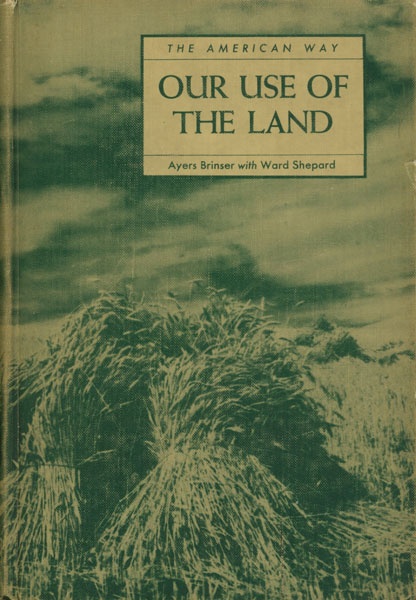
It's been twenty-five years since the launch of the Master of Municipal Administration degree program. All told, only sixty-seven students have earned the degree, an average of three per year.
“The most valuable resource of this nation is the soil,” writes Ayers Brinser in Our Use of the Land, a book describing America’s land use problems through the Dust Bowl. Brinser is part of the interdisciplinary group that spearheads a comprehensive curriculum review for the institute in the late 1960s, leading to a shift from administration to policy. “Gold is more spectacular; iron has in two generations made men richer; copper has opened up greater possibilities of advancing techniques. But, it is the soil which produces the lasting and essential wealth of the nation,” he writes.
World War II begins as Germany invades Poland.
1940
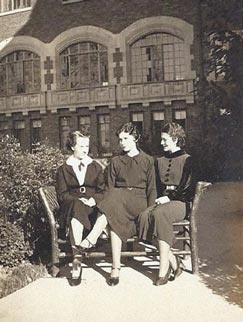
Mary Ellen Heitsch Ward graduates. The only female in her class, she's announced as "Mr. Heitsch" at commencement. She is engaged in public service and administration ever after, and becomes a particularly passionate advocate for people living with disabilities, a cause she serves for more than five decades.
1941
World War II interrupts the studies of many students and class offerings are reduced. The required professional experience is maintained through a partnership with the Michigan Civil Service Commission.
1944
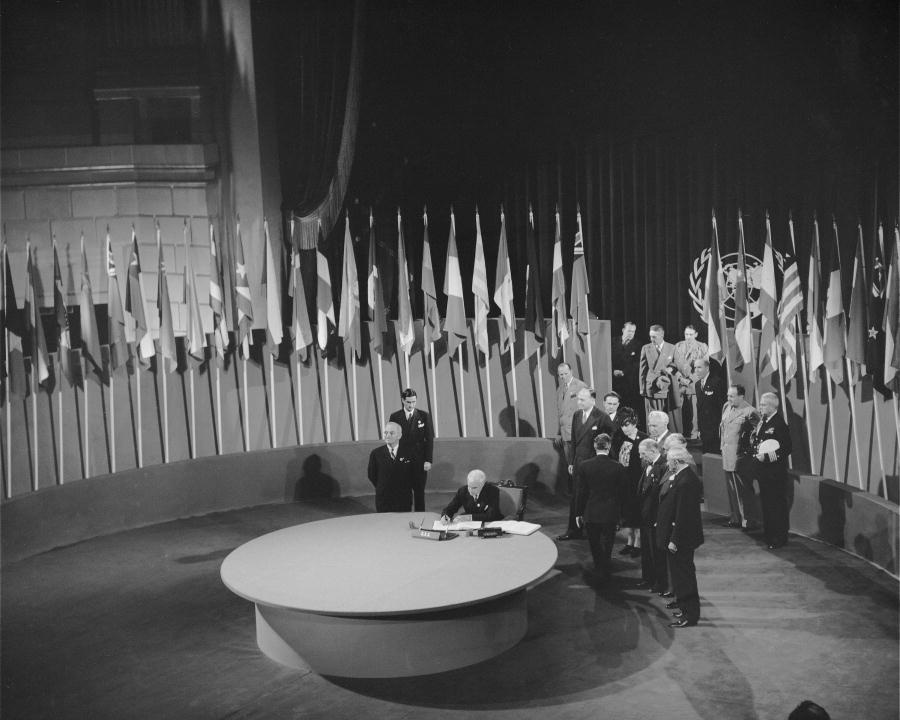
Bretton Woods Conference is held July 1–22, gathering hundreds of delegates from Allied Nations to regulate monetary practices.
1945
The United Nations is formed on October 24.
1946
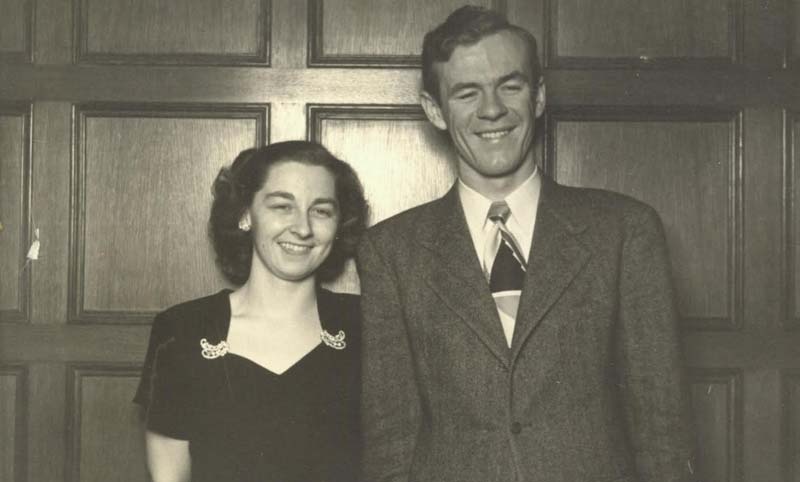
The Institute of Public Administration is born, led by an interdisciplinary executive committee of deans and directors.
Betty Lou Bidwell (MPA ’50) begins her studies in public administration. Her memoir of the time period, and scrapbook of photos and memorabilia, paint a picture of a thriving institute and tight-knit community. “The couple of dozen students in the [public administration] program were a varied group. Some were veterans, there to prepare for a career in government, and many were married. Along with the faculty and research assistants, we enjoyed a lively social life together. We organized a Michigan Chapter of the American Society for Public Administration with regular meetings, excellent speakers and great refreshments. We held parties regularly on Friday afternoons—any excuse for a party!—and in the spring held big picnics at a local park, including spouses, children and faculty members. One year some of us traveled to Washington, D.C. by train to attend the annual national conference of the ASPA,—an adventure by itself.”
1947
John W. Lederle serves as director from 1947-1960 when he leaves to become president of the University of Massachusetts. A former Detroit lawyer, Lederle consults for the United States House and Senate and serves on a number of state boards and commissions.
June 5, Marshall Plan pledges support to European nations to rebuild after WWII.
1949
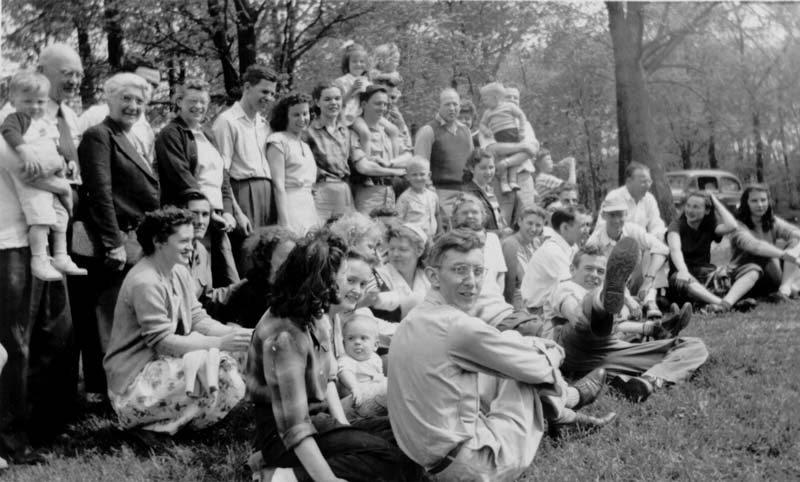
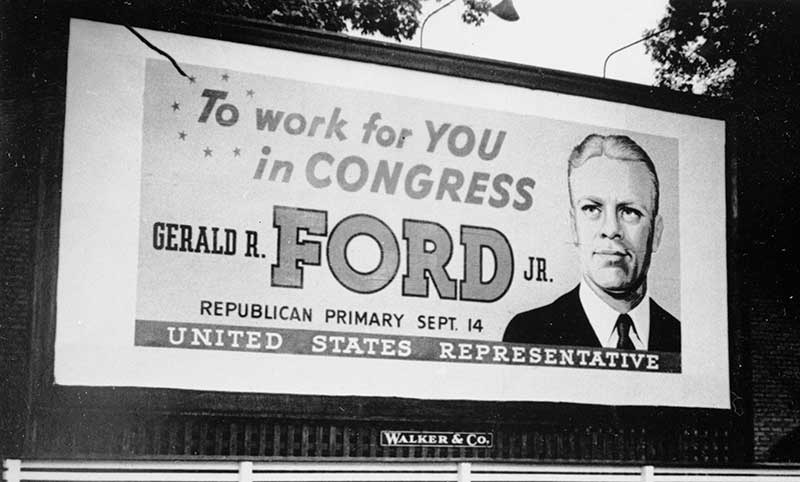
The October Newsletter to Graduates reports, "If we get very much prouder of all our graduates, we'll be bursting at the seams… we can boast of 2 city managers, 3 administrative assistants to city managers, 3 "professors," 11 in state government, 2 at Washington, as well as numerous graduates scattered through personnel and planning agencies, citizens' groups, research offices, etc. from Maine to California. Not bad, for a post-war crop…"
"The famed spring picnic (Second Annual) was a riproaring success,” reports the Institute of Public Administration’s May 1949 Newsletter to Graduates. “A mob of 72 ASPA’ers…turned up on May 8th at the Dexter-Huron Metropolitan Park….After miscellaneous contests including spirited egg tossing and a three-legged race (won by Gene Moody and bride), the group adjourned to the baseball field where Dorrit’s Delinquents suffered defeat at the hands of Bromage’s Firefighters, 9 to 2.”
Harding Hughes (MPA ‘48) is tapped to conduct a complete classification and pay survey for Winston-Salem, NC’s 1,200 jobs. Among his responsibilities, making field audits. “Exciting but not enjoyable event occurred when the Fire Training Lieutenant coaxed me up the 85 ft. aerial ladder. Up at the top of the building, the lieutenant first tried to sign me up for the fire department, then yelled down for a net for me to jump into. I took one quick look at the ground, declined both invitations, and returned to terra firma immediately, if not sooner--by the ladder.” (October 1949 newsletter)
Gerald R. Ford runs for his first public office to support the Marshall Plan–wins his U.S. Congressional seat with an impressive 60.5 percent of the vote.
1950
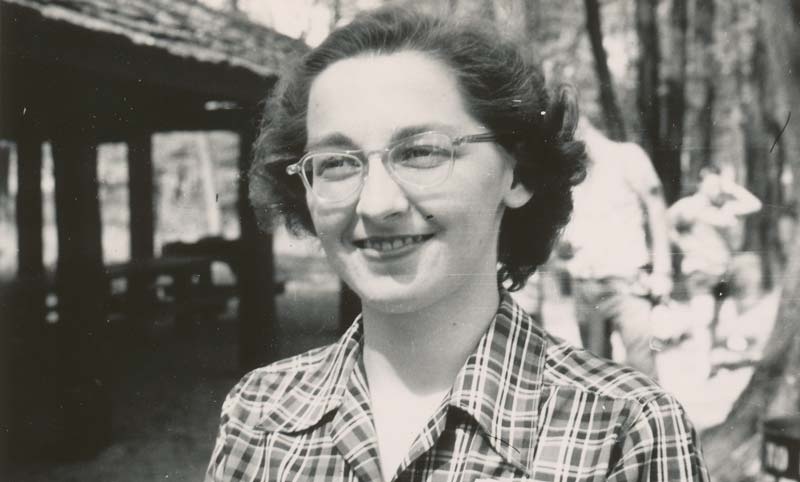
In an arrangement with the U.S. Department of State, the institute hosts eleven young German administrators for a five-month democracy program.
Haven Hall burns down. No one is badly hurt, but the Bureau of Government collections suffer extensive damage. About a third of the collection is beyond recovery, much of the rest is water-logged.
Betty Lou Bidwell (MPA ‘50) takes a break from her work at the Ohio League of Women Voters to attend the Ohio State game at U-M. She favors IPA students with a visit, and “some well-chosen remarks about cultivating the grass roots in Ohio,” reports the student newsletter. They honor her with a tinseled chapeau and certificate of merit. The certificate recognizes Bidwell for, among other things:
- “dashing through the offices, thus creating a self-propelled air-conditioning system,”
- “keeping the staff on edge for days while deciding whether to work in New York or Ohio,”
- “sympathetically listening to all tales of trials and tribulations,” and
- “handling mail, typing, saving stamps, criticizing reports, and performing a multitude of other chores too numerous to mention.”
1952
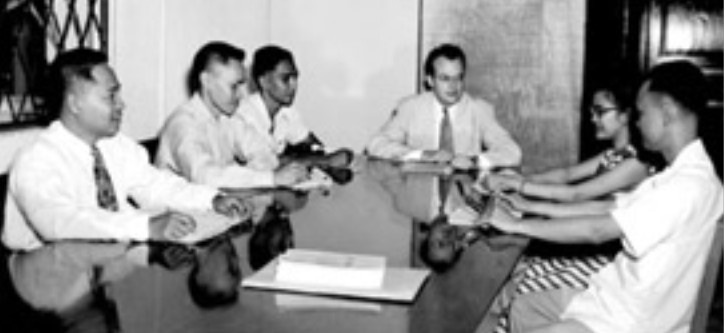
U.S. Agency for International Development grant allows faculty to help establish the National College of Public Administration and Governance at the University of the Philippines. Letters from Manilla discuss the resurrection of Rizal Hall (after WWII bombing damage), residential and in-service courses for current and future public servants, a growing library, and more.
1953

Larry Mohr (MPA '63, PhD '66) meets Odetta at a North Beach bar in San Francisco. The two will go on to record the live folk/blues album, Odetta and Larry (aka The Tin Angel), released by Fantasy Records the following year. From 1966 until his retirement in 1999, Larry will teach scores of aspiring public servants at U-M
1954
Chief Justice Warren, delivering the opinion of the U.S. Supreme Court in Brown v. Board of Education, concludes that “in the field of public education the doctrine of ‘separate but equal’ has no place. Separate educational facilities are inherently unequal. . ."
1955
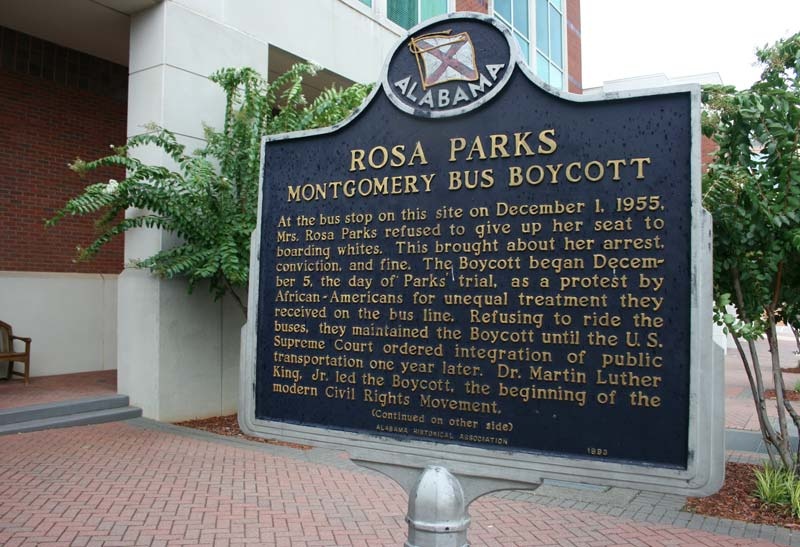
Rosa Parks refuses to give up her seat on an Alabama bus.
1957
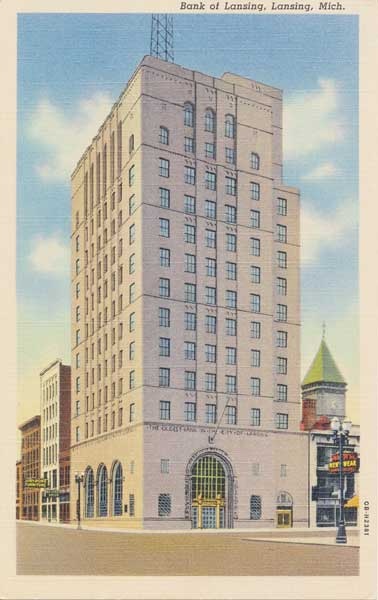
The institute opens a field office on the ninth floor of the Bank of Lansing building. Lansing staff coordinate research projects for state clients and organize internships for public administration students.
1958
Institute staff conduct a comparative study of prison camps in Canada and the U.S., as well as several state studies on administrative service growth, workmen's compensation, natural resources management, controls on state agency spending, and more.
1960
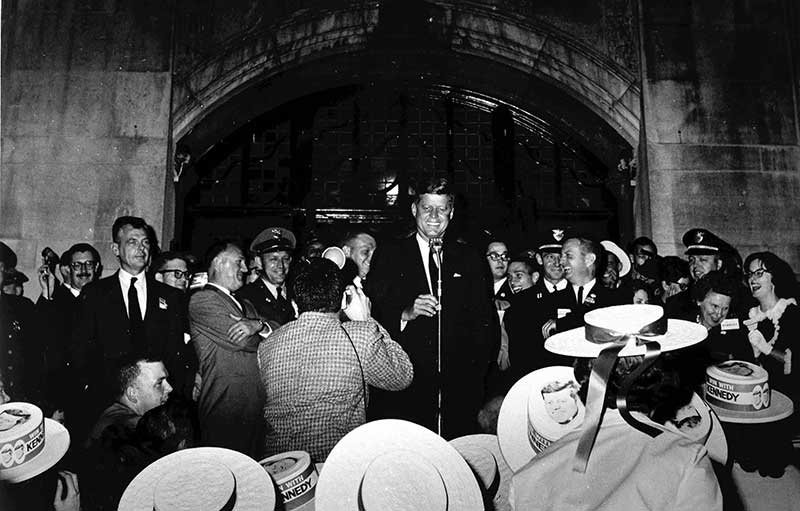
Ferrel Heady, one of the founders of comparative public administration, is appointed director of the institute. He believes that all public administration students should be knowledgeable about the governance systems used abroad, and advocates for incorporating a comparative perspective into all courses. In 1966, Heady publishes Public Administration: A Comparative Perspective, now in its sixth edition.
John F. Kennedy announces the concept of the Peace Corps during a Presidential campaign stop on the steps of the Michigan Union. "How many of you who are going to be doctors are willing to spend your days in Ghana?" he asked the students huddled around the steps. U-M students rally around the concept and more than a thousand pledge to serve.
1962
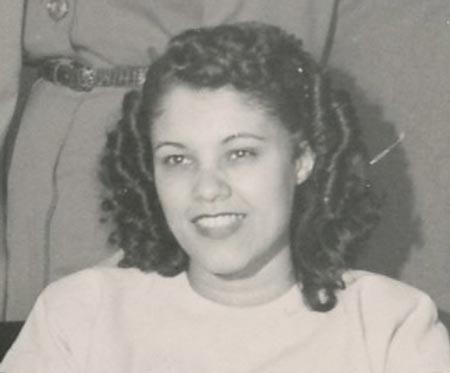
U.S. Agency for International Development contract sends IPA faculty to Taiwan to assist in the development of National Chengchi University's Department of Public Administration.
Jean Drew Lightfoot (MPA ‘50) is featured in Jet magazine. “Meanwhile, Jean Drew Lightfoot, now acting director of the Community Relations Conference of Southern California, will begin work early in September as special assistant to the director of the office of public liaison in the State Dept. Mrs. Lightfoot, who holds a master’s degree in public administration, was formerly employed at Howard University.”
Cuban Missile Crisis
1963
Martin Luther King, Jr. gives “I have a dream” speech
1964
President Lyndon Johnson delivers "Great Society" speech at U-M commencement. "The Great Society rests on abundance and liberty for all. It demands an end to poverty and racial injustice….But that is just the beginning."
Thomas H. Reed (director 1922-1934) returns for the 50th anniversary of the program. In the 1920s and early '30s, says Reed, "we generally patted ourselves on the back that we were doing something unique here." That's no longer the case. Similar training programs have sprung up at a number of universities.
Two-hundred and fifty-one students have graduated in the last 25 years, an average of ten per year.
Johnson signs Civil Rights Act on July 2, Economic Opportunity Act on August 20, Food Stamp Act on August 31, and others.
Nice prognosticating.
At a panel on the future of public administration, Deil S. Wright (MPA '54, PhD '57) sums up the first fifty years of research, and tries to peer ahead to 2014. Wright's predictions include:
- high-speed computers will make it easier to handle scores of variables, and will reduce the effort and cost of analyzing data;
- greater methodological sophistication, more sophisticated theories, and more studies confirming causal relationships;
- a combined empirical-normative approach;
- a closer relationship to the policy process that will "force researchers to have a concern for value judgments based on the[ir] research findings;"
- better and more relevant information for decision-making, but no easy answers for administrators; and
- the continued growth of interdisciplinary studies and more research in which a given problem is approached simultaneously with different techniques.
1965
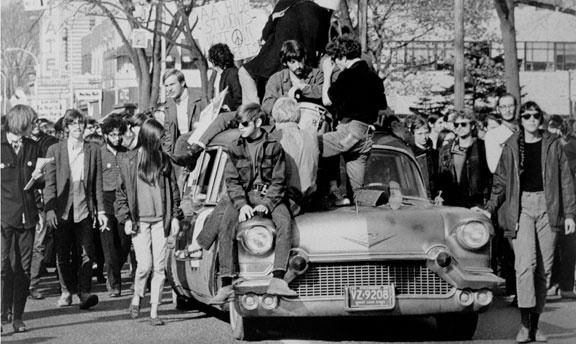
University of Michigan faculty organize first teach-in to protest the war in Vietnam. Thousands of students attend. Teach-ins will follow at universities around the nation.
1967
Lansing field office closes. Ferrell Heady, director of the institute, recruited to the University of New Mexico.
November 29, Robert McNamara resigns his post as Secretary of Defense to lead the World Bank. McNamara and his "whiz kids" employed advanced statistical methods and systems analysis to streamline the Pentagon. They also contributed to the escalation of the Vietnam War.
1968
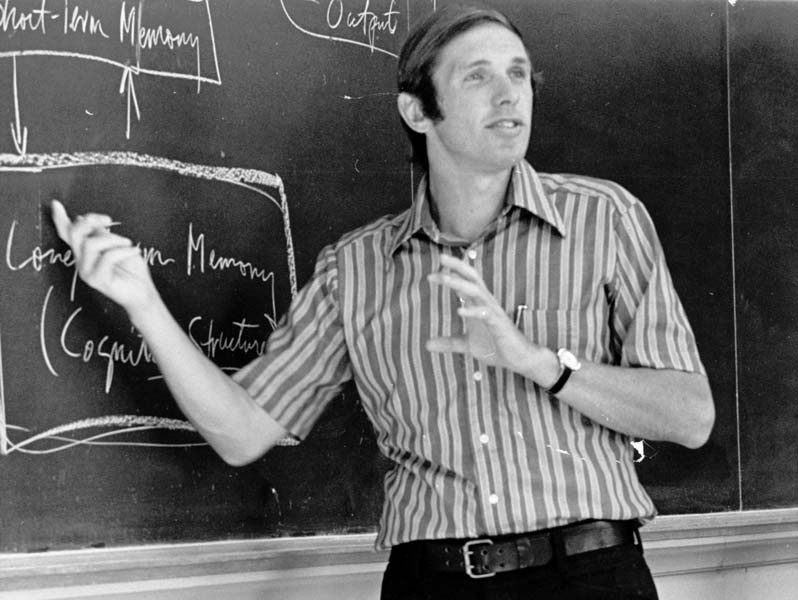
A comprehensive review of the institute is launched, led by an interdisciplinary advisory council that deliberates on the future of public administration. The council believes many practical skills can be learned on the job, and suggests refocusing the curriculum on "an analytic toolkit" and cutting-edge "problem-solving methodologies."
Twenty-nine year old Pat Crecine is appointed director of the transitioning institute and serves in that capacity until 1973, when he's recruited to Carnegie-Mellon where he's first dean, then senior vice president and provost. In 1987, Crecine becomes the 9th president of Georgia Tech.
The Institute of Public Policy Studies (IPPS) is launched; it's the nation's first public policy degree program (others will soon follow). Crecine and his colleagues dramatically reshape the curriculum. The pioneering interdisciplinary social science core emphasizes economic and statistical analysis, an understanding of the political environment of policy, and the importance of organizations to successful implementation. This will become the gold-standard approach, employed by policy schools everywhere.
Patrick Crecine and others attend “Half-Baked Ideas Seminars” and share “Smirking Papers,” with the goal of getting feedback while ideas are in the early stages of development and new ideas and collaborations are easier to integrate. “The norm is one of minimal preparation, polish, and ego involvement,” he writes.
1970

U-M students protest war and discrimination. A massive teach-in on the environment is held in March, attracting roughly 50,000. Across the nation, the first Earth Day events on April 22 draw 20 million.
U.S. Environmental Protection Agency established December 2.
1971
First Master of Public Policy degrees awarded.
1973
Vice President Spiro T. Agnew resigns and in his place, Richard Nixon appoints Gerald R. Ford (AB '35, HLLD '74). Nixon congratulates Betty Ford. "Congratulations? Or condolences?" she quips.
Japan begins to send competitively selected public administrators to IPPS for graduate study. More than 100 Japanese administrators will enroll in the program in the years ahead.
1974
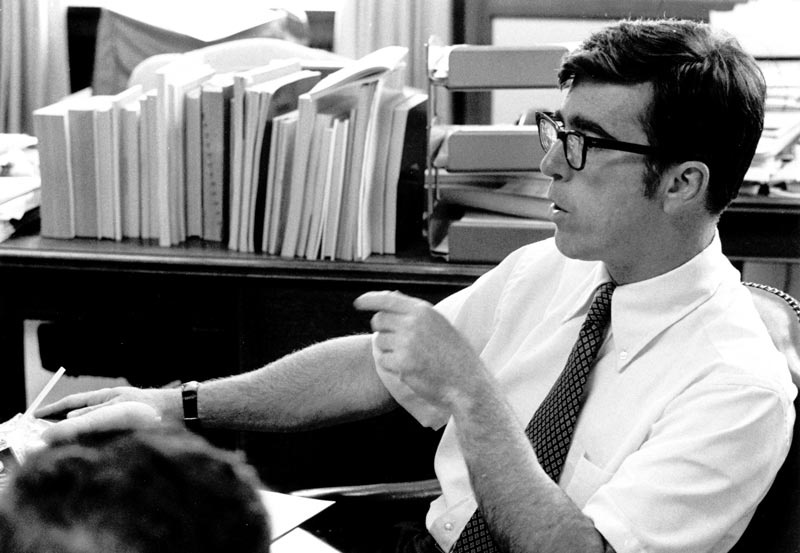
Jack L. Walker serves as director of the Institute of Public Policy Studies from 1974–79. He encourages faculty to take leaves of absence to serve government agencies. "When faculty members return," he says, they immediately see ways to improve the curriculum, "to better prepare students for entry into government." He pushes to integrate realistic problem-solving exercises into policy courses.
IPPS PhD and postdoc programs are launched with gifts from the Ford Foundation and National Institute of Mental Health. Early graduates include Patrick Larkey (MPP '71, PhD '75), who goes on to direct the Department of Social and Decision Science at Carnegie-Mellon University and John Padgett (MA/MPP '74, PhD '78), who becomes professor of political science, history, and sociology at the University of Chicago.
Ford grants Nixon full pardon. Foreseeing a long litigation, bitter controversy, divisive national debate, and challenges to the credibility of government at home and abroad, Ford says, "It could go on and on and on, or someone must write the end to it. I have concluded that only I can do that, and if I can, I must."
1975
"In order to maintain a balance of trade we are now beginning to export Ph.D.s as well as import them," writes Jack Walker, director of the Institute of Public Policy Studies, in a March 20, 1975 memo to faculty and staff. "Pat Larkey, or the first product with the letters IPPS Ph.D. tatooed across his forehead, has accepted a position as Assistant Professor in the University of British Columbia's School of Business. Besides unlimited funds for travel and research assistance, and excellent facilities and colleagues, he has rainbow trout in his backyard (salmon are in the front), ski slopes on the mountains overlooking the city, and total wilderness an hour by car outside Vancouver. The only drawback is that he will no longer be the highest paid graduate student in the world. Now he is the highest paid Assistant Professor in the world, but that definitely is a step down."
1976
First endowment is established in honor of Arthur W. Bromage, a beloved faculty member and public administrator.
Ford signs the Government in Sunshine Act on September 13, narrowing the authority of agencies to withhold information from the public and requiring most agencies to give advance notice of meetings and to hold them openly.
1977
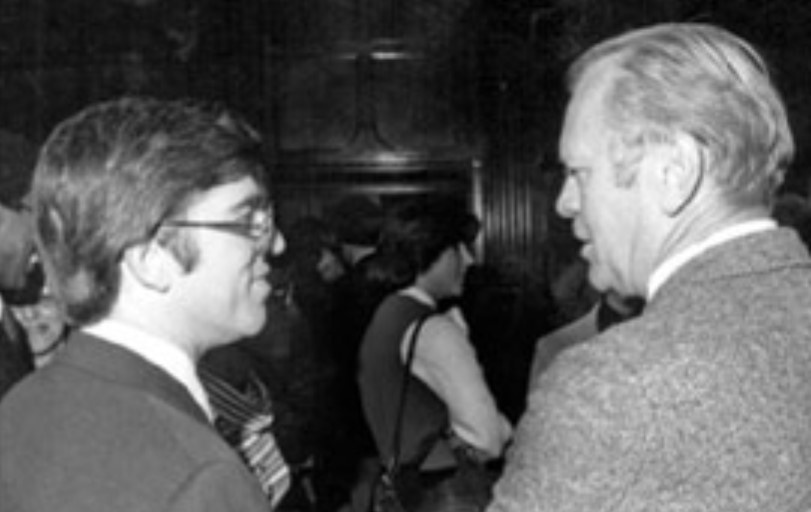
President Carter launches Presidential Management Intern Program to entice public management graduates into federal service. First IPPS PMIs are Andy Moxam and Stephen Deal. In the coming years, 141 alumni will accept Presidential Management Fellowships.
On Gerald Ford’s last day in the Presidency, IPPS director Jack Walker visits him in the Oval Office to discuss naming the University of Michigan policy institute in his honor.
1978
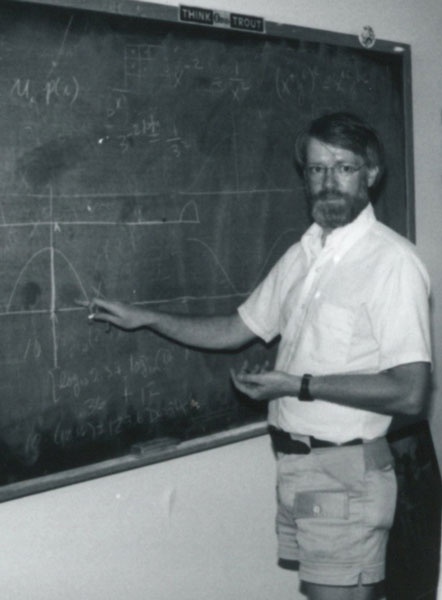
John Chamberlin offers first seminar on ethical issues of concern to policymakers. This will become a core component of the school's curriculum in the years ahead.
Robert Axelrod begins research for The Evolution of Cooperation (Basic Books, 1984). The book, which has been translated into 12 languages and is taught and read around the world, earns him a MacArthur Foundation genius grant (in 1987) and the first National Academy of Sciences award for "behavioral research relevant to the prevention of nuclear war."
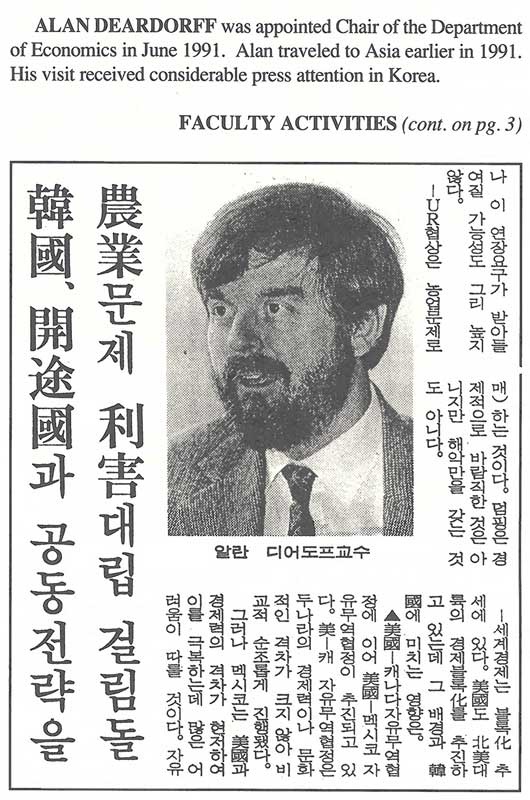
"IPPS Goes International." Newsletter announces a new international track to prepare students for mid-level positions at USAID, the World Bank, the United Nations, and other agencies. All track instructors are named Bob: Bob Putnam, Bob Stern, Bob Axelrod, Bob Powell, and Alan "Bob" Deardorff, who teaches "International Economic Policy."
1979
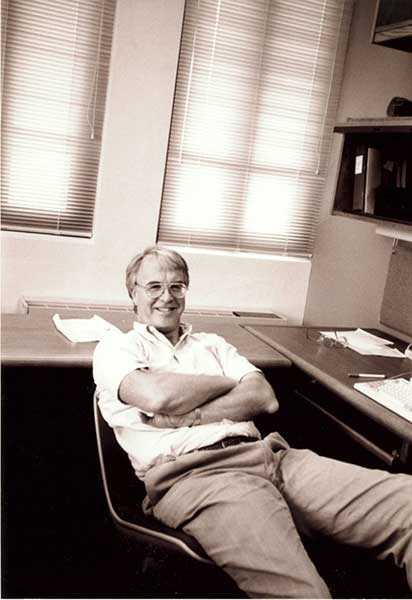
Edward (Ned) M. Gramlich serves first stint as director of the institute from 1979-83. He'll serve a second stint, too; then a third. A nationally recognized economist, Ned spends the next decades balancing prominent public service commissions (Governor of the Federal Reserve Board among them) with the mentoring and training of aspiring public servants.
Fifteen policy schools and research institutes become charter members of the Association of Public Policy and Management (APPAM); among them, the Institute of Public Policy Studies.
Department of Education Organization Act signed October 17.
1981
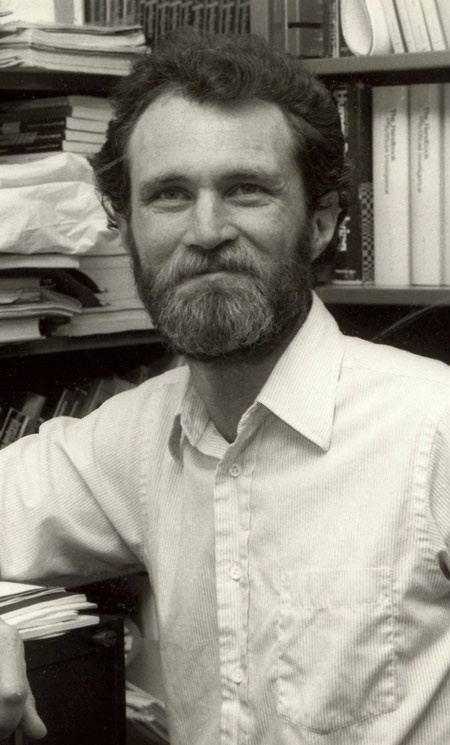
“IPPS Automates,” designing software to replace faculty, reports IPPS RIPPS, an irreverent student newsletter that stormed the institute from 1981-83. “Michael Cohen, found packing his bags for California, muttered, ‘I kept emphasizing the human factor and job satisfaction, but once they got rolling, there was no stopping them. They just kept screaming, ‘Efficiency, Automation, Computerization!’” Among the authors of IPPS RIPPS, Jeff Mackie-Mason (MPP ’82), now dean of the U-M School of Information.
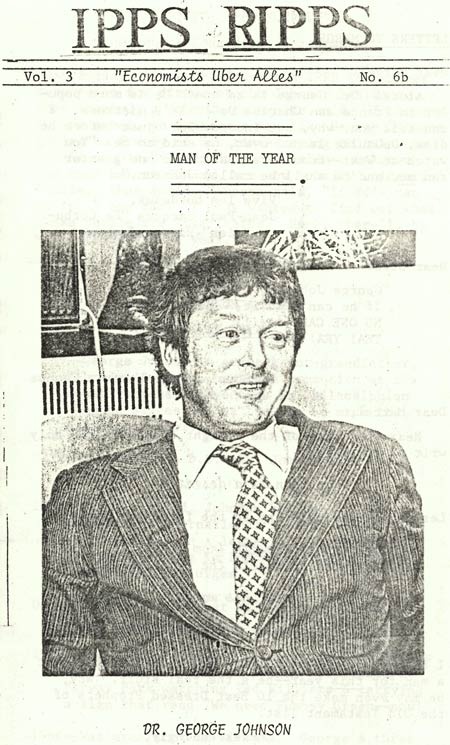
George Johnson wins “Best Dressed Professor” from The Michigan Daily after an energetic letter-writing campaign, including Gary Woodard’s pithy nomination: “George Johnson is best, dressed.”
The Centers for Disease Control reports the first cases of what will become known as AIDS.
1983
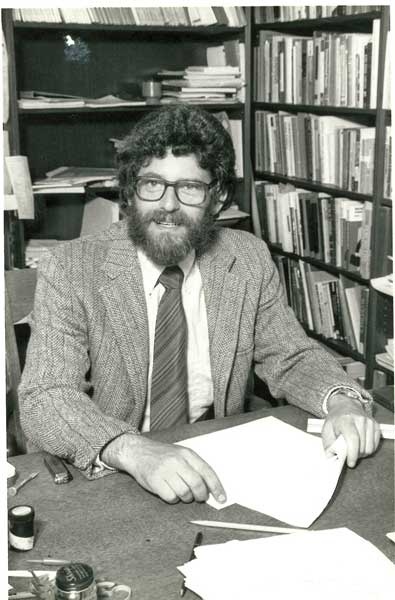
"Ned Gramlich, the Mr. Rogers of the policy world, is stepping down from his directorship as of July 1," reports IPPS RIPPS. Paul Courant, "a man of different temperament, a modern-day (shorter) Rasputin, who has for years influenced the decisions of Milktoast Gramlich," takes the reigns from 1983-1987. Later asked if he anticipates any significant changes in the structure of the institute, Courant responds, "Not really, Helene [McCarren] will still be running the place."
Public Policy and International Affairs (PPIA) program is launched by the Sloan Foundation in a national effort to help underrepresented minorities prepare for leadership roles in public service. IPPS signs on, and has never looked back–a point of pride. During three decades, more than 15 percent of the 4,000 Public Policy and International Affairs Fellows will complete their studies in Ann Arbor. Alumni include Foreign Service officers with USAID, senior policy advisors to the United Nations, vice presidents at major corporations, program managers at national nonprofit advocacy groups, and more.
1984
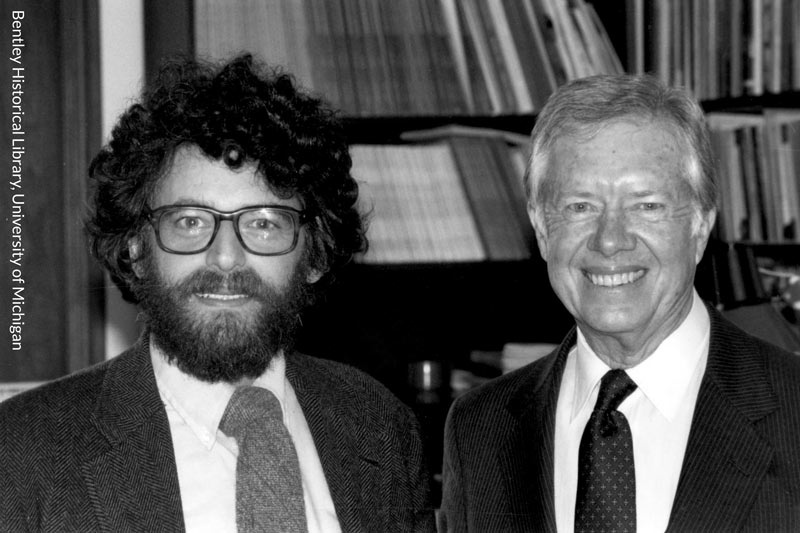
1985
Scientists discover hole in earth's ozone.
1987
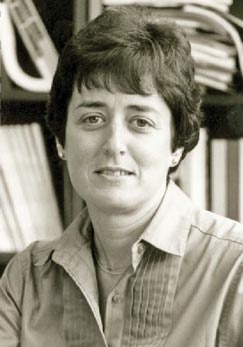
Edie Goldenberg becomes the first female director of the institute–during her two-year tenure, she helps to lay the groundwork for IPPS's transition to a school. Edie's next post? Dean of the College of Literature, Science, and the Arts–a role she'd fill for nearly a decade.
Elena Delbanco replaces Tish O'Dowd as IPPS' part-time writing tutor. Increasing numbers of students turn to her for help and over time, additional writing instructors are hired. Today, three instructors teach writing courses and work one-on-one with the Ford School's students. We'd like to say the school's intense focus on policy writing is "unique," but Delbanco outlawed that word here years ago.
1989
With initial funding from the Rockefeller Foundation and ongoing support from the Ford Foundation, Sheldon Danziger organizes a postdoctoral training program on poverty and public policy for minority scholars.
Seventy-fifth anniversary of the program. In the last twenty-five years, 783 have graduated from the program, an average of 20 per year.
Joel Smith (MPP '82), part of the EPA's strategic studies branch, co-edits a highly publicized Report to Congress entitled, "The Potential Effects of Global Climate Change on the United States." The report states that increased production of greenhouse gases, principally carbon dioxide from fossil fuels, could cause the earth's atmosphere to warm by 3 to 9 degrees Fahrenheit within 100 years causing rising sea levels, increases in northern crop acreage, dieback of southern forests, and severe water supply shortages in California.
1990
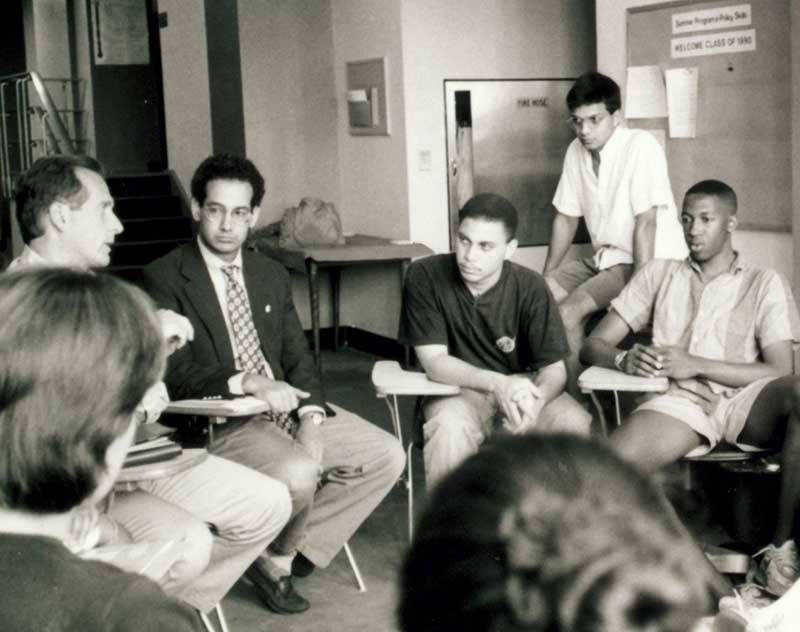
Alumni/ae Advisory Board meets for the first time, "The advent of the Board is part of what I am coming to think of as the "growing up" of IPPS," says Paul Courant, during one of several stints as director. "In addition to being a window on the practice," Courant says, "I hope that the Board will also serve as a door (or, perhaps, as a Star Trek-like teleporter) between IPPS in Ann Arbor and IPPS in the rest of the world."
"The IPPS computing center (i.e., closet) has recently become a much happier place," reports the newsletter. Peter Borish (MPP '82) donates six personal computers with printers and software for use by IPPS students.
National Affordable Housing Act, November 28.
1991
The Ford School Committee (originally, the Committee for IPPS), begins to meet regularly to promote and increase private support for the school's students, research, and policy engagement. Michael Staebler (JD '69), a senior partner with Pepper Hamilton LLP and son of former Democratic State Chairman Neil Staebler (AB '26), serves as founding chair.
1992
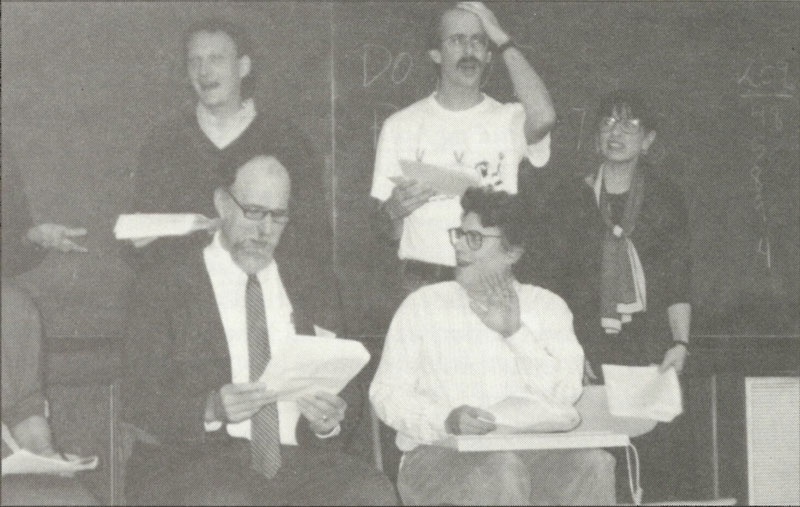
"Jim Levinsohn, Gary Solon, Elena Delbanco, Carl Simon, and Paul Courant, once again fail to come up with a funny holiday skit." More (or less) entertaining holiday skits remain an ongoing tradition at the Ford School.
Energy Policy Act, October 24.
1993
NAFTA Implementation Act, December 8.
1994
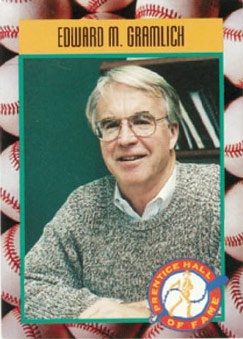
Ned Gramlich, previously contracted by Major League Baseball for an analysis of economic questions of interest to players and owners, is tapped for a UM-Flint professor's "Economists Trading Cards," the academic equivalent of baseball cards, minus the gum.
Ford Motor Company funds Detroit internships for University of Michigan policy students (1994 through 2005).
1995
"Greetings from Ann Arbor, home of the new School of Public Policy," opens the newsletter. The promotion to schooldom provides SPP with self-governance and most importantly, enables the school to hire faculty and grant tenure. Ned Gramlich becomes the school's first dean.
Unfunded Mandates Reform Act, March 22; Lobbying Disclosure Act, December 19.
Sigma Phi Epsilon fraternity house (at the corner of State and Hill Streets) burns down. The house will be razed, replaced by a parking lot, and will one day provide a site for the newly promoted school. Fraternity members support the construction efforts, and a study room is named in their honor.
Professor Carl Simon and colleagues use complex systems methods to discover that HIV is most transmissible in the first month of infection. They win Howard M. Temin Prize for "scientific excellence in the fight against HIV/AIDS.”
1996
Personal Responsibility and Work Opportunity Reconciliation Act, August 22.
1997
Last class of the millennium arrives; the class of 1999 includes 63 students. Forty-six percent are women, 27 percent are students of color, and 10 percent are international.
First official "Applied Policy Seminar" offered, putting students to work on a semester-long commissioned assignment for a public sector client. In 1997, students analyzed the revenue impacts of a city income tax for Ann Arbor. In 1998, they conducted research for a number of community-based development organizations in Detroit.
Ford School is accepted into the prestigious Association of Professional Schools of International Affairs; in 2013, Ford School Dean Susan M. Collins will be elected president.
1998
The Nonprofit and Public Management Center is launched in a joint venture with the schools of business and social work; Janet A. Weiss is founding co-director. Since 2010, nearly 200 Ford School students have participated in the center's premier programs, including its Social Impact Challenge, nonprofit board fellowship program, and Social Innovation Summit.
U.S. State Department sends the school its first Diplomat-in-Residence: Dan Turnquist, who speaks five languages and has spent a quarter-century working as a labor officer in nine different countries.
1999
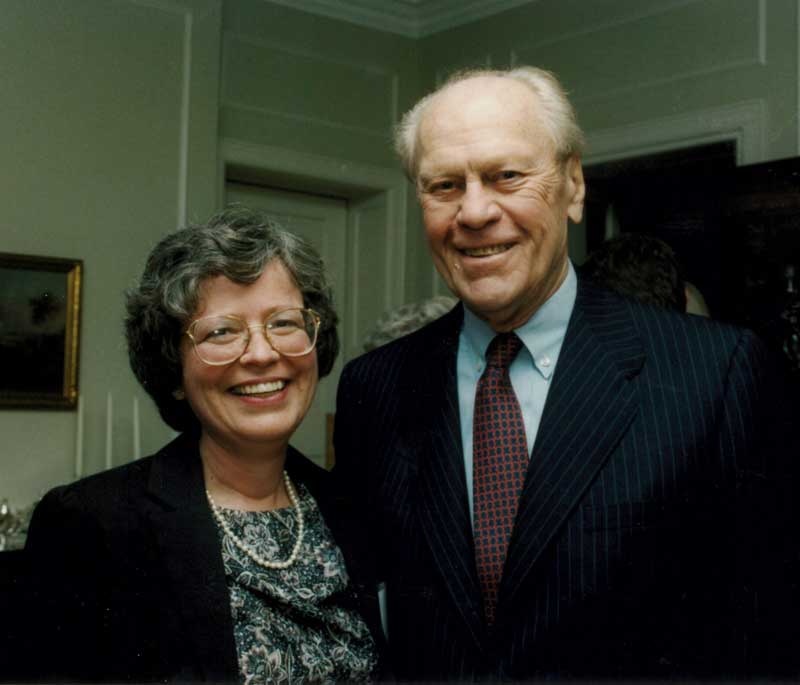
Rebecca Blank becomes dean. During her tenure, the school will be renamed in honor of President Gerald R. Ford; launch a joint-PhD program and a new undergraduate degree; establish three major research centers; and construct a new building, Joan and Sanford Weill Hall, with contributions from hundreds of alumni and friends.
First Integrated Policy Exercise is taught by Ann Lin. The focus: sweatshop labor. The course became a required component of the curriculum, and has been taught annually ever since.

Students propose a new international economic development course. They'll select a country for study, investigate its most pressing development issues, and plan a week-long spring break visit that will allow them to meet with policymakers. In the next ten years, roughly 250 students will participate, visiting Cuba, Ethiopia, Jordan, Peru, the Philippines, and other nations.
To honor and celebrate its most distinguished alum, the University of Michigan names the policy school after President Gerald R. Ford. In 2001, the school marks the occasion with a major naming ceremony at Hill Auditorium. Henry Kissinger delivers the keynote.
The New York Times publishes a stirring letter from President Ford, publicly and forcefully voicing his support for affirmative action as the U.S. Supreme Court weighs a case against the University of Michigan's admission practices. "I don't want future college students to suffer the cultural and social impoverishment that afflicted my generation."
2001
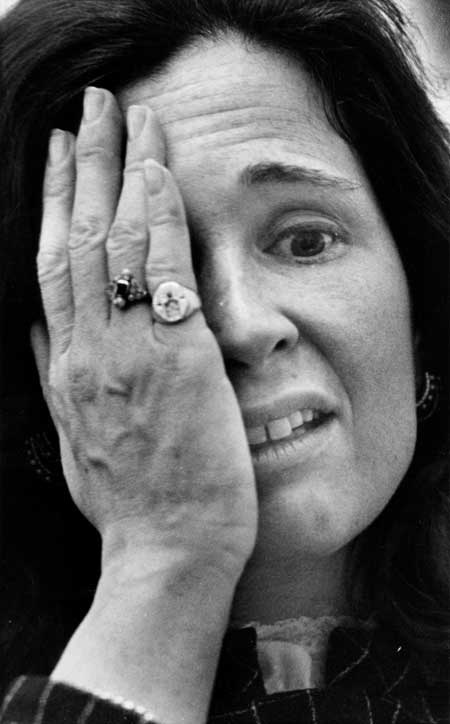
CLOSUP, the Center for Local, State, and Urban Policy, is founded with an allocation from the state legislature; Elisabeth Gerber is recruited as founding director. The goal: to ensure continuous engagement between U-M's academic researchers and the stakeholders and policymakers working to address state, local, and urban policy problems.
Some $12 million is contributed to the school's endowment fund this year, most gifts in honor of Gerald R. Ford. Endowment funds support a variety of initiatives, including faculty professorships, lectures and public speakers, a policymaker-in-residence program, and more.
Joint-PhD program established with economics, political science, and sociology; Mary Corcoran serves as founding director. In the first ten years, 38 students will earn the degree and find positions, some with policy organizations and most with prestigious universities, including Duke, Harvard, Princeton, and Yale.
Marina von Neumann Whitman becomes the first faculty member (as far as we know) to be burned in effigy on the Diag as students protest the construction of the Yadana gas pipeline in Myanmar. At the time, Whitman, a professor of business administration and public policy, sat on the board of directors of Unocal, one of several companies financing the pipeline. (Michigan Daily, Activists protest “U” Myanmar holdings”, April 5, 2001)
January 23, President George W. Bush signs bipartisan No Child Left Behind Act.
2002
Ford School receives a $5 million award from the U.S. Department of Health and Human Services to host the National Poverty Center.
2004
A crowd watches on as President and Betty Ford join the groundbreaking ceremony for Joan and Sanford Weill Hall, the school's future home. Newsletter reports, "Throughout the school's nomadic history, home has been a state of mind." Over the last 90 years, the school has taken refuge in the library, Angell Hall, the law building, Haven Hall, Rackham Building, Lorch Hall, the Huron Annex, the Oakland Annex (staff will throw rocks, quite literally, when it's torn down) and, according to legend, a space above a nightspot called the Nectarine Ballroom.
Ford School begins U.S./China academic exchange with Renmin University's School of Public Administration.
2005
The International Policy Center is founded to foster interdisciplinary research and education for policymaking in an increasingly globalized world.
2006

"Those of you who always thought that a student lounge consists of two couches at the end of the hallway? Come see the new graduate student lounge," boasts Becky Blank, anticipating the construction of Weill Hall. "While our alumni, faculty, and current student body demonstrated an admirable ability to look beyond the physical in recognizing the Ford School's attributes, future recruits will be spared that particular test."
The Science, Technology, and Public Policy certificate program is launched; Shobita Parthasarathy and Jim Duderstadt (former U-M President) co-direct. Recipients have gone on to prestigious positions with the American Academy of Arts and Sciences, Government Accountability Office, Department of Energy, New York City Mayor's Office, and more.
The mayor of Ann Arbor, John Hieftje, is recruited to teach "Local Government, Opportunity for Activism."
Gerald R. Ford is unable to attend the dedication of Joan and Sanford Weill Hall, but his prepared remarks are read by Steve Ford, his son. "In this era of spin and sound bites, of raised voices and clenched fists, it is easy to throw up one's hands in exasperation or disgust. But whoever said that democracy is easy?"
2007
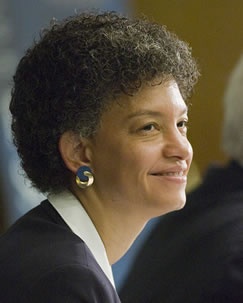
Susan M. Collins joins the Ford School as dean. An international economist and senior fellow at the Brookings Institution, Collins' research focuses on economic growth in developed and developing economies. At the Ford School she works to dramatically raise the school's visibility by hosting more events and attracting high-profile speakers. The annual number of Ford School media mentions quintuples during her tenure, from 500 in 2008 to 2,600 in 2013. Ben Bernanke visits in 2013 and over 11 million people see Twitter dialogue about the event.
First bachelor's students begin their studies at the Ford School; John Chamberlin, founding director of the program, calls them "incredibly bright students who rip up every class they take."
Ford School offers graduate fellowships to returned Peace Corps volunteers preparing for careers in public service who commit to intern in underserved communities. The program has attracted close to four-dozen Peace Corps volunteers since inception.
2008
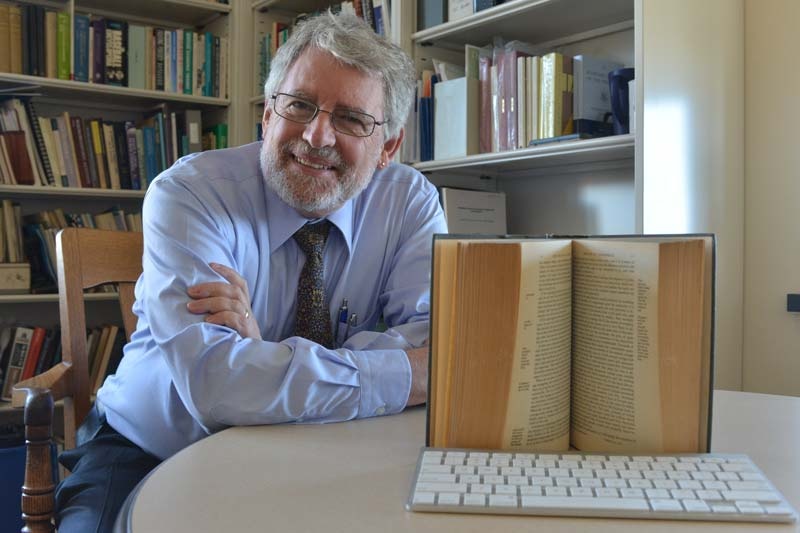
Paul Courant and colleagues establish HathiTrust, the largest digital library in the world with 11.5 million volumes (Sept. 2014). “In the print world, preservation’s assured by the fact that there are a lot of copies out there, people toss them on the shelf, and they rot slowly,” says Courant. HathiTrust ensures the long-term preservation of millions of volumes, while allowing libraries to offer free online access to all public domain works for anyone with an internet connection. Each weekday, 50,000 users access HathiTrust resources.
Economic Stimulus Act, February 13; Housing and Economic Recovery Act, July 30.
2009
With startup funding from the W.K. Kellogg Foundation, CLOSUP works with the Michigan Municipal League, the Michigan Association of Counties, and the Michigan Townships Association to launch the Michigan Public Policy Survey (MPPS), a longitudinal survey of the chief elected and appointed officials in every county, city, township, and village in Michigan.
"Alum Annie Maxwell (MPP '02) named White House Fellow. Congrats Annie!" Awww…our first Tweet! 3,175 Tweets later…most RT'd? "Betsey Stevenson appointed to President Obama's Council of Economic Advisers."
Research by Sharon Maccini and Dean Yang is featured in New York Times Magazine’s ninth annual “Year in Ideas.” “The Rainfall Theory of Development” highlights the couple's research on the long-term effects of early-life rainfall on health, education, and economic well-being.
2010
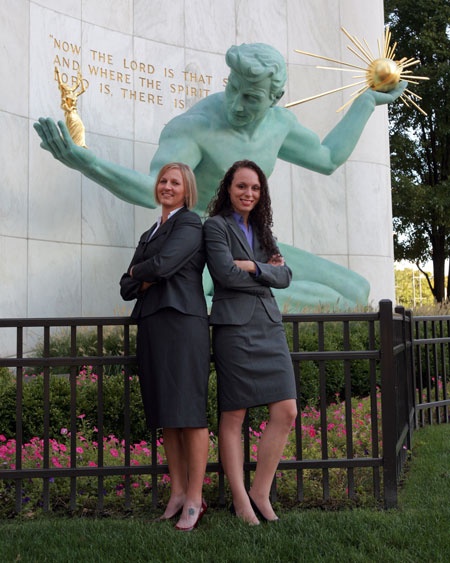
Ford School announces first David Bohnett Leadership and Public Service Fellows, Julie Schneider (MPP ’12) and Elizabeth Palazzola (MPP ’12). With philanthropic support from David Bohnett (MBA ’80), Schneider, Palazzola, and many other Bohnett Fellows will intern in the City of Detroit Mayor’s Office.
Alumnus Michael Pan (MPP ‘99), senior policy advisor to the U.S. Ambassador to the United Nations, delivers the commencement address to new graduates. “What ultimately sustains you in this profession is the conviction you bring into it,” he tells them. “Remember the boldness of your vision.”
March 23, Affordable Care Act; July 21, Dodd-Frank.
2011

From the Great Hall, to the Great Wall: a new course takes students and faculty to China to study contemporary policy.
The Ford School helps to commemorate the 50th anniversary of the Peace Corps; Susan Collins co-organizes a national symposium, "Charting the Future of International Service."
2012
Education Policy Initiative launched by Susan Dynarski and Brian Jacob to lead rigorous research that informs education policy debates in Michigan and across the nation.
Barry Rabe launches National Surveys on Energy and Environment (NSEE) in collaboration with Muhlenberg College. The surveys gather opinions about climate change, hydraulic fracturing, and other topics.
2013

Puppy play dates, Bulgarian cursing lessons, guided tours of Detroit, sausagemaking classes, growlers of homemade hard cider….Student-led charity auction wins Forever Go Blue philanthropy award from U-M.
July 14 marks 100th anniversary of the birth of Gerald R. Ford. Ford School hosts Henry Kissinger, Paul O'Neill, Carla Hills, Brent Scowcroft, Frank Zarb, and others from his administration.
2014
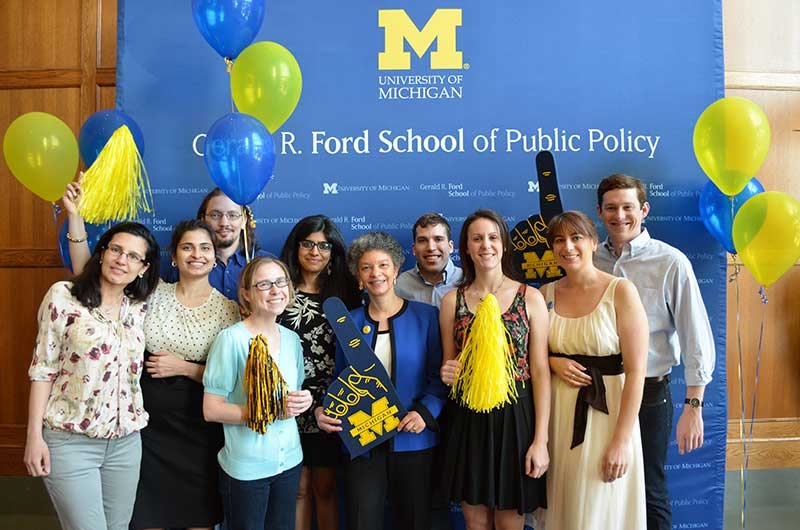
In the last twenty-five years, 2,094 students have earned public policy and public administration degrees at the school, an average of 84 per year.
In September, the 100th anniversary class will arrive. We anticipate 105 master's candidates, 65 bachelor's candidates, 6 joint-PhD candidates, and 7 who will work toward certificates in science and technology policy.
Today, more than 150 schools in America, and many others across the world, offer degrees in public policy.